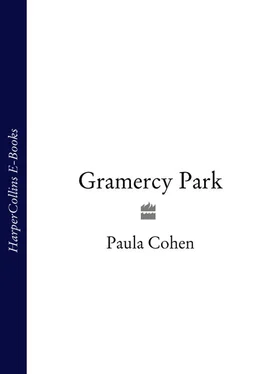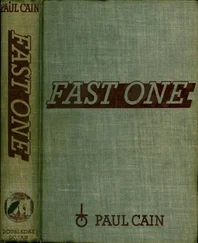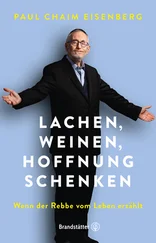To his credit, Buchan does not laugh. “Not an everyday predicament, to be sure. Would you care to share the full story with me?”
“On one condition, Daniel, and that is that you not tell my family. I’ve succeeded in keeping it from them all this time, and I have no intention of having them learn it now.”
“As shameful as all that?”
“Don’t be ridiculous. But Mother would be shocked beyond words, and even Father would find it less than amusing—the Dyckman name, you know. Truly a shame,” he says, with a grin, “because it really was very funny … although I was the last one to think so, at the time.
“I had only been in Italy for about three weeks, you see—this was in Milan—and I had developed the habit of walking about late at night, in order to take in as much of the atmosphere of the city as I could. On this particular night, right behind La Scala, the opera house, someone hooked an arm through mine, and there I was, with this creature hanging on to me.
“I was pathetically green, remember, and knew no Italian. I tried my best to extend my regrets, and tell her that I wasn’t interested, but she wasn’t having any of it. Finally, in sheer desperation—well, I pushed her away. It was far from gallant of me, I admit, but I simply didn’t know what else to do. At any rate, she stumbled, being none too steady on her feet. She didn’t fall, and nothing but her pride was injured, you understand—but that was more than enough. She began to scream—gathered quite a crowd.” Stafford laughs. “I had no idea of what she was saying, of course, and the people in the crowd were definitely less than helpful—some of them undoubtedly knew English, but didn’t want to spoil the fun—and when the guardia came I had visions of spending the night in jail, and having to send to the American consulate in the morning …”
His eyes narrow, smiling at the memory. “And then, suddenly, there was Mario. He had sung that night, and was just leaving the opera house, but he stopped to see what the commotion was about. I had no idea who he was, of course, but the crowd certainly did—it parted like the Red Sea to let him through, applauding madly all the while. He offered to translate, listened first to the woman, then to me, and had the whole thing sorted out in five minutes. It seems, by the way, that what my lady was announcing to the assembled populace of Milan was that I had enjoyed her services and then refused to pay.
“Mario paid her, of course, out of his own pocket … not to have done so would have meant that he knew she was lying, and Mario would never offend her that way.” Stafford is thoughtful. “Just as an aside, do you know what she did with the money? She kissed the bills, tucked them inside her bodice, just above her heart, and said that she would put them by her statue of the Blessed Virgin and never spend them because they had been given to her by il signore con la voce degli angeli , the man with the voice of the angels.”
The young man shrugs and smiles. “Mario never told me that, by the way. It was told to me later by someone else. All Mario said was that I was a menace to his country, and then he invited me to join him and a few friends for dinner the following evening. And that,” he says, “is the true story of how I met Mario Alfieri.”
Buchan nods. “You are very fond of him.”
“He is my dearest friend. He has been very good to me—and for no other reason than pure kindness. But that is Mario’s way.”
“What are his people like?”
“Very much like him; very generous, very open. His family is large, although not very, not by Italian standards. His mother died when he was small, and had no other children, but his father remarried when Mario was ten or so, and the present Signora Dottore Alfieri has more than filled the breach. He has a host of half brothers and sisters—four brothers, three sisters, to be exact—all very much younger than he, and a perfect army of little nieces and nephews.”
“Do you know them well?”
“I’ve met them all, at one time or another. I know some of them better than others.” Dyckman reddens slightly.
“Did you say, by the way, that he’s never been married?”
“I never said anything about it, but yes, it’s true. He’s never been married. Most people, of course, think it’s because he has no need to be … the plethora of ladies, you understand …”
The lawyer cocks his head and looks at Dyckman. “You don’t believe that.”
“No, I don’t.”
“Why not? Do you know the real reason?”
“I have my theory, which may or may not be correct. We’ve certainly never discussed the matter.”
“And what is your theory?”
“Quite simply that he’s never met any woman he’s wanted to marry.”
The lawyer lifts an incredulous eyebrow. “Among so many?”
Dyckman shrugs. “We each have our own criteria. You said yourself that he’s an unusual man. Perhaps he’s looking for something very rare.”
“Which is what?”
Dyckman shrugs again. “Unless he finds it, we’ll never know.”
“Stafford,” Buchan says, leaning across his desk, “I am not the enemy, and your friend is a famous—I will not say infamous—man. Anything more you can tell me about him may help me in my dealings with Mr. Chadwick.”
“You still want to know about Mario’s women.”
“I want to know why a man extravagantly romantic enough to wish to buy a house for a young woman he never saw before yesterday should still be a bachelor. I simply refuse to believe that he could have escaped unscathed all these years. You say that you can tell me about him? All right, then”—he leans back in his chair—“tell me about him.”
“Well, would it surprise you to learn that he’s always had a penchant for the ladies? His stepmother …” Dyckman smiles at the memory. “His stepmother once told me that all her friends loved attending sewing circles and musicales and other such ladies’ meetings at her house because Mario would go from chair to chair, kissing the hand of each guest and telling her how lovely she looked.”
“Considering whom we’re speaking of, is that so remarkable?”
“Daniel,” Dyckman says. “He was twelve years old at the time.”
The lawyer laughs and cocks his head. “So this is not something he’s cultivated as he’s grown older.”
“Oh, no … it’s bred in the bone. He told me once that since he was thirteen he’s spent more time in the confessional, and on his knees, doing penance, than any three men he’s known … and I think he was only half joking. Mario likes women a great deal.”
“So do I, Stafford. But when I was thirteen I wanted nothing more than to go swimming with the boys in the summer, and watch the trains pulling into the station. That, I guess, is what makes the difference between Mario Alfieri and me.”
“That,” the young man grins, “and the fact that he can sing like a god.”
“The clear implication being that I do not.”
“I’ve heard that the minister asked if you would be kind enough to mouth the hymns,” Dyckman answers, “because you were throwing the organist off-key. By the way,” he says casually, “one of Mario’s sisters did tell me that once, years and years ago, he did want to marry.”
Buchan shifts in his chair. “Did he, indeed?”
“It was a very brief affair, very intense. Mario was wild about the girl. She was a year or two older than he … also a singer, apparently. She refused his offer of marriage … wanted her own career, and ran off with some German landgrave with a castle on the Rhine, several schlager scars, and a small private army, who promised to help her. Mario’s family were pleased that she was gone: he was just becoming famous, singing all over Italy, and had refused several plum roles because he would not be separated from her. He went half mad when she left him, and tried to get her back, but the landgrave wouldn’t let him near.” Dyckman is smiling no longer. “He never saw her again.”
Читать дальше












